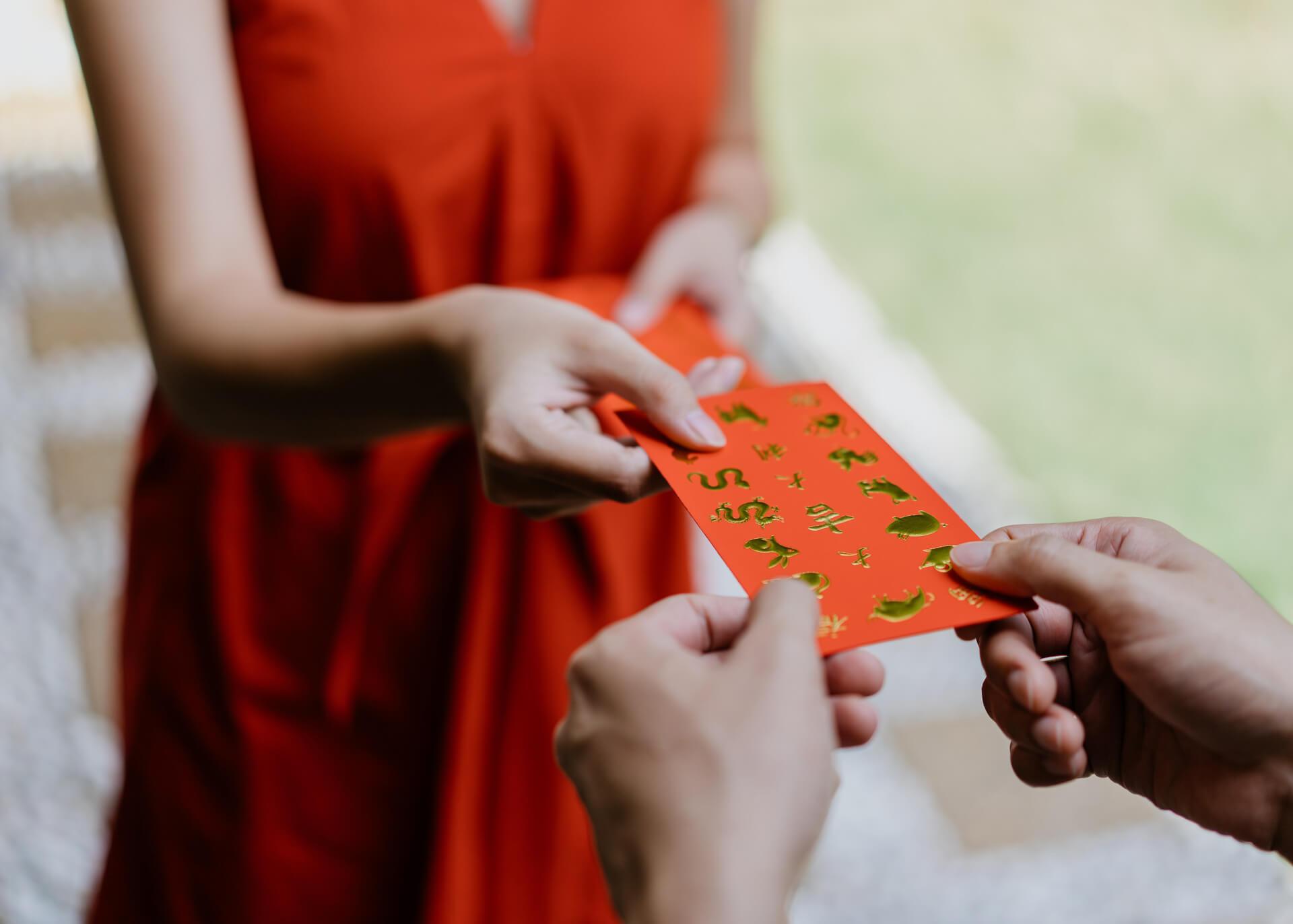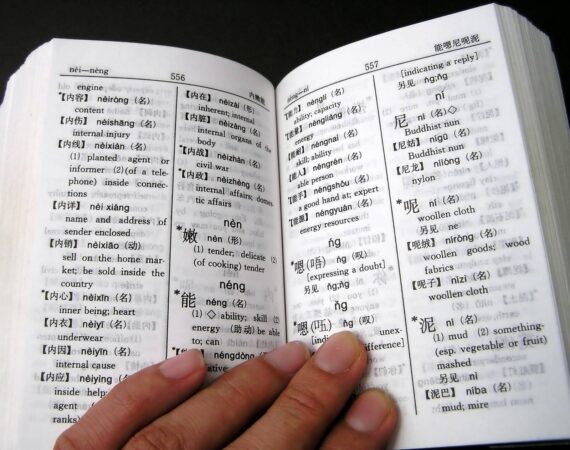12 Ways to Say You’re Welcome In Chinese

Do you feel flustered or embarrassed when someone is grateful to you? What should you say when someone says “thank you”? How do you say “you’re welcome” in Chinese?
In many Western countries, it is customary to say thank you for almost any small service, from the guy in front holding open the door to the shop clerk who rings up your bill. In China, however, people tend to say 谢谢 xièxie (thank you) only when someone does something specifically for them, beyond the bounds of their daily responsibilities. Therefore, it’s essential to acknowledge that person’s heartfelt “thank you” with something more than just a nod or a smile!
With that in mind, let’s dive in and explore twelve common expressions for you are welcome in Chinese.
1.不客气 – Bù kèqì
In English, “You’re welcome” is an automatic, failsafe response for almost any situation in which someone thanks you for your help. When we first learn a language, it is tempting to try to translate such responses directly.
However, as is so often the case with the Chinese language, the literal translation doesn’t make sense here – it is simply wrong. The word for welcome in Mandarin Chinese, 欢迎 huānyíng, is never used to mean “You’re welcome,” – trying to use it in this way will only create confusion. Instead, there are a variety of different ways to express the same meaning in the Chinese language.
One of the most common ways to say “You are welcome” in Chinese and usually the first taught to students of Mandarin Chinese, is the easy and ultra-useful phrase: 不客气 bù kèqì.
Pay attention to the pronunciation here. Though the pinyin suggests otherwise, when 不 precedes another character with a falling tone, it is more natural to use a rising tone: bú (not bù).
客气 kèqì means “polite,” or “courteous,” so 不客气 bù kèqì means literally “not polite,” or “discourteous.” Here, however, it is a shortening of 不用客气 bùyòng kèqì, meaning something along the lines of “there’s no need to be polite.” It’s the simplest and most common way to respond whenever someone says thank you:
谢谢你。
xièxie nǐ.
Thank you.
不客气。
bù kèqì.
You’re welcome.
2. 别客气 – Bié kèqì
One of the other common expressions used to say “You are welcome” in Chinese is 别客气 bié kèqì. While still commonly used in daily conversation, it’s slightly more formal than 不客气 bù kèqì.
Here 客气 kèqì functions as a verb, meaning to act politely, to be courteous. When 别 bié is placed before a verb, it acts as a negative command and is generally translated as “Don’t…[verb].” 别客气 bié kèqì, then, means “Don’t be polite,” “Don’t stand on ceremony,” or in more natural English, “You’re welcome.” For example:
谢谢你让我用你的电脑。
xièxie nǐ ràng wǒ yòng nǐ de diànnǎo.
Thanks for letting me use your computer.
别客气,你尽情地用吧。
bié kèqì, nǐ jìnqíng de yòng ba.
No problem, use it as much as you like.

3. 你太客气啦 – Nǐ tài kèqì la
The ever-useful 客气 kèqì also appears in this commonly used expression, another way to say “You are welcome” in Chinese. Use 太客气 nǐ tài kèqì when you really want to make someone feel at ease. The 啦 la particle at the end functions as an exclamation, so 你太客气啦 translates to “You’re so polite!“- the implication being that there is no need for the other party to be so polite, you are happy to help:
非常感谢你的帮助,没有你我是不可能做到的。
fēicháng gǎnxiè nǐ de bāngzhù, méiyǒu nǐ wǒ shì bù kěnéng zuò dào de.
Thank you so much for all your help; I couldn’t have done it without you.
你太客气啦!这没什么。
nǐ tài kèqì la! Zhè méishénme.
You’re too polite. It was nothing.
4. 不用谢 – Bùyòng xiè
After our triptych of phrases based around 客气 kèqì, this is the most common way to express “You’re welcome” in Mandarin. In much the same way that 不用客气 bùyòng kèqì means that there is no need to be polite, 不用谢 bùyòng xiè implies that there is no need for gratitude, no need for thanks. Once again, pay attention to the pronunciation here, as the tone for 不 should change to a rising tone. For example:
帮我开一下窗户,好吗?– 谢谢。
bāng wǒ kāi yīxià chuānghù, hǎo ma? – xièxie.
Could you open the window for me? – thanks.
不用谢。
bùyòng xiè. (read: bú yòng)
You’re welcome.
In more casual conversation, people often drop 用 yòng and say simply 不谢 bùxiè.

5. 没事(儿) – Méi shì(‘r)
In Chinese culture, people tend to show politeness through modesty, and many of the expressions used to say “You’re welcome” function in this way. By suggesting that whatever you did was no big deal, or that you didn’t do that much to help, you can avoid making the other party feel uncomfortable, especially if they seem sorry to have troubled you.
So long as you’re familiar with the character 没 méi, meaning “not” or “none,” our next way to say “You’re welcome” in Chinese should be easy to understand. 事 shì is a catch-all noun meaning anything from “matter” or “affair” to “business” or “accident.” Here it is best thought of as “thing,” so 没事 méishì means “It’s nothing,” “It wasn’t any trouble,” “Don’t worry about it” – an easy, casual response whenever someone says thank you:
谢谢你的帮助。
xièxie nǐ de bāngzhù.
Thank you for your assistance.
没事儿。
méishì’r.
No problem.
6. 小意思 – Xiǎoyìsi
小意思 xiǎoyìsi is often used in China when presenting someone with a gift to mean “a small token,” “a mere trifle,” as in the phrase 这是我的一点小意思 zhè shì wǒ de yīdiǎn xiǎoyìsi (This is a little something from me.) Its deprecatory tone is used to describe something one did, for example, 这种事小意思,一个小时就可以做完 zhèzhǒng shì xiǎoyìsi, yīgè xiǎoshí jiù kěyǐ zuòwán (This job is nothing really, I can finish it in an hour.)
When someone says thank you, you can reply with 小意思 to mean “It was nothing,” “No big deal,” or “No sweat,” in much the same way that you use 没事儿:
谢谢你早上倒垃圾。
xièxie nǐ zǎoshàng dào lājī.
小意思。
xiǎoyìsi.
No worries.

7. 小事一桩 – Xiǎoshìyīzhuāng
小事一桩 xiǎoshìyīzhuāng is a set phrase meaning “a trivial matter” or, in more colloquial English, “a piece of cake.” It is a good expression to use after giving help, to make the person thanking you feel relaxed, by implying that whatever you did was not difficult or important, just a little thing. Also very informal, it has the same meaning as 小意思 xiǎoyìsi, but is a little old-fashioned and more often used by older generations:
非常感谢你修理我的手表。
fēicháng gǎnxiè nǐ xiūlǐ wǒ de shǒubiǎo.
Thank you so much for fixing my watch.
别客气,小事一桩。
bié kèqì, xiǎoshì yī zhuāng.
No problem, it was a piece of cake.
8. 别见外 – Bié jiànwài
The verb 见外 jiànwài is made up of 见 jiàn (to meet, to see)and 外 wài (outside, foreign). It means “to treat as an outsider” or with the level of courtesy usually accorded to a guest or stranger. When you think someone is overly polite, you can use 别见外 bié jiànwài to show your embarrassment at being treated with such formality. Using this phrase signifies that you consider the person a friend – or at least an acquaintance – and that such politeness is unnecessary between friends. For example:
不好意思打扰你了。
bùhǎoyìsi dǎrǎo nǐ le.
Sorry for disturbing you.
咱们是朋友,你别见外。
Zánmen shì péngyǒu,nǐ bié jiànwài.
We’re friends, right? Don’t be so polite.

9. 应该的 – Yīnggāide
Most learners of Chinese will already be familiar with the modal verb 应该 yīnggāi, employed before a verb to say that one should or should not do something, for example, 我应该做点儿运动 wǒ yīnggāi zuò diǎn’r yùndòng (I should do some exercise.) Saying 应该的 yīnggāide implies that there is no need to say thank you because this is something you should have done. It can be translated more naturally as “sure thing,” “no problem,” or “no worries,” and has a similarly colloquial tone. It’s best used when someone says thank you for a small act of kindness, such as holding open the door or reminding them when they leave their umbrella behind. For example:
[handing someone their umbrella] 你忘记带伞了。
nǐ wàngjì dài sǎn le.
Here, you forgot your umbrella.
噢,谢谢。
ō, xièxie.
Oh, thank you.
应该的。
yīnggāide.
Sure.
10. 我很荣幸 – Wǒ hěn róngxìng
A more formal expression of “You’re welcome” in Mandarin, best translated into English as “It was my pleasure.” It’s a great expression to use when you want to sound very polite or humbled by someone’s gratitude or when speaking with someone you regard as superior or in a position of authority. It usually follows 别客气 bié kèqì or 不客气 bù keqì to make a complete phrase, i.e., 别客气,我很荣幸 bié kèqì, wǒ hěn róngxìng (You’re welcome, it was my pleasure.) For example:
感谢您今天出席。
gǎnxiè nín jīntiān chūxí.
Thank you for attending today.
别客气,我很荣幸。
bié kèqì, wǒ hěn róngxìng.
Not at all. It was my pleasure.

11. 谢什么呢 – Xiè shénme ne
Another very colloquial expression, 谢什么呢 xiè shénme ne means something like, “What are you thanking me for?” Rather than seeking clarification, the speaker answers with this expression as a sign that they require no recognition for their action. It is similar to 应该的 yīnggāide, as both expressions imply that this is something expected of you, and not something deserving of thanks.
谢谢你把餐具放好。
xièxie nǐ bǎ cānjù fàng hǎo.
Thanks for setting the table.
谢什么呢!
xiè shénme ne!
Sure.
12. 不会 – Bùhuì
Those of you teaching or studying in Taiwan may already be asking the question: “what about 不会 bùhuì?” While rarely used in this context on the mainland, this is one of the most common ways to say “You’re welcome” among the Taiwanese, and often the first visitors will learn, if not necessarily the first students are taught. Once more, remember the tone change from bù (fourth tone) to bú (second tone).
In China, 不会 bùhuì is used to mean “can’t” or “won’t,” as in 我不会唱歌 wǒ bùhuì chànggē, which could mean either “I can’t sing” or “I won’t sing,” depending on the context. You can also use 不会 when you want to express that you don’t agree with what is being said, or to say that something is impossible. But with your Taiwanese friends, it is an easy, colloquial way to respond to someone thanking you, as common as 不客气 bùkèqì or 不用谢 bùyòngxiè:
感谢你的关心。
gǎnxiè nǐde guānxīn.
Thank you for your concern.
不会。
bùhuì.
Don’t mention it.
A quick note: It is best to avoid using 不会 in this context outside of Taiwan, as you are likely to be misunderstood. At best, you may leave your listener asking for clarification; at worst, you might offend.
So, there you have it, twelve easy ways to say “You’re welcome” in Chinese. Now, the next time someone says thank you, whether you merely held open the door for them or went so far as to rescue them from drowning, you’ll know how to respond. In most situations, 不客气 bù kèqì, 别客气 bié kèqì, or 不用谢 bùyòng xiè will serve you just fine, but if you want to take your Mandarin to the next level, it’s good to get to grips with some of the other phrases.
Just think how impressed people will be when, the next time someone says thank you in Chinese, you answer with “小事一桩” (xiǎoshìyīzhuāng), or “别见外” (bié jiànwài) instead of the usual “不用谢” (bùyòng xiè). And, when you really want to impress, you can break out an expression of polite formality like “我很荣幸” (wǒ hěn róngxìng).








